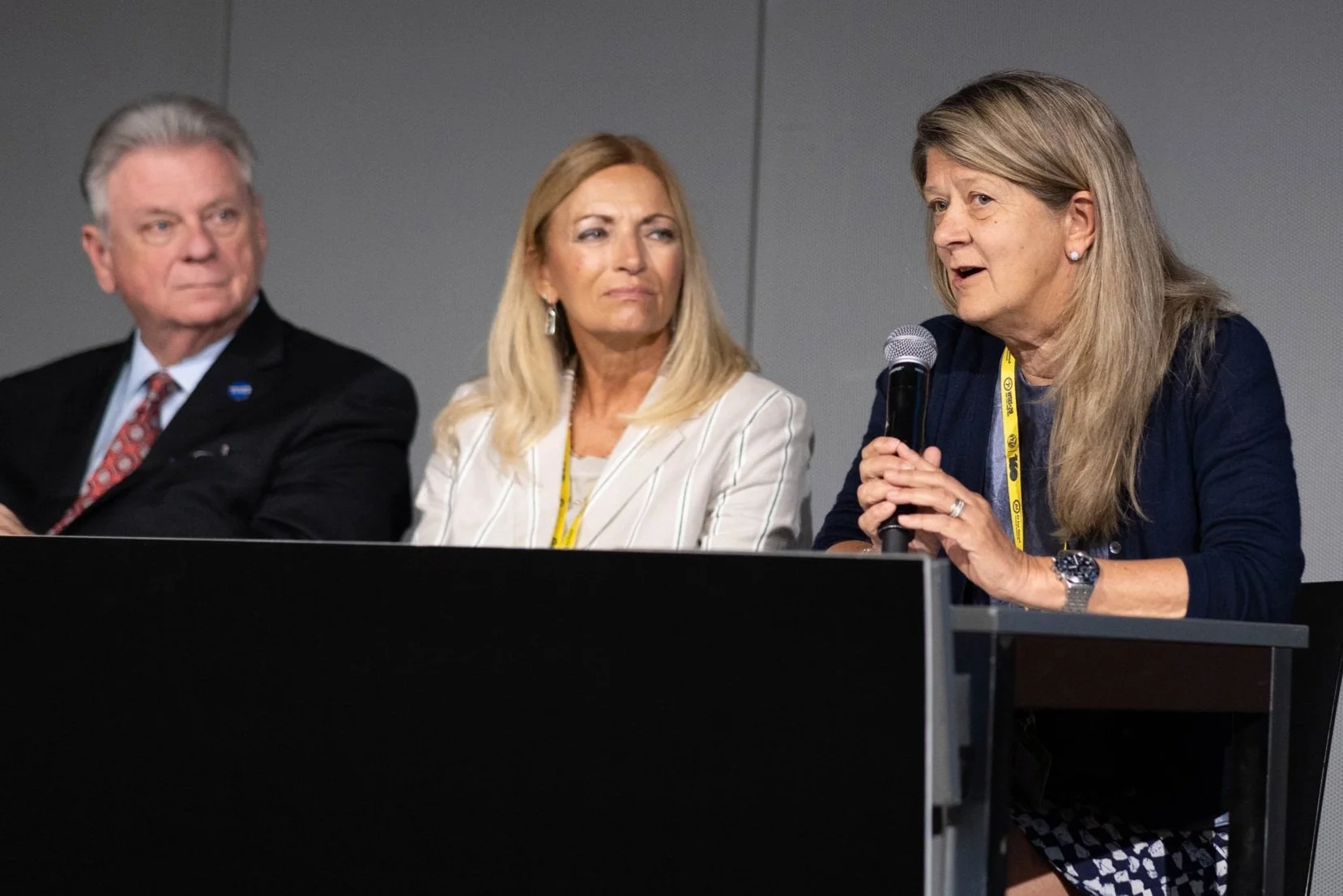AI Futures: Reimagining Learning & Work
At the AI for Good Global Summit 2025, the TASC Platform convened a high-level, hands-on session on the future of learning and work. The workshop, AI Futures: Reimagining Learning & Work in 2035 and Beyond, brought together over 250 participants, from educators and students to policymakers, technologists, and private sector leaders, for a rare mix of foresight, dialogue, and collaborative design.
Co-hosted and introduced by Rebecca Corbin, President and CEO of the National Association for Community College Entrepreneurship (NACCE), and Huy Nguyen, Co-Founder, Solve Community Challenges (SolveCC), the workshop posed a bold question: What would it take to make aspirational AI futures not only imaginable, but real?
The session leaned into the aspirations and lived perspectives of students, educators, and community colleges, bringing their vision into direct dialogue with global experts in AI, policy, and governance.
“The goal of AI for Good was never just to scale the best-performing models, it was always to build communities of intention. If we want futures worth living in, they must be designed, together.”
An opening panel set the scene for discussions ahead, with insights on ongoing initiatives responding to and steering the impact of AI on learning and work from Amy Diaz, President, GateWay Community College, Jim Murdaugh, President, Tallahassee State College, Huy Nguyen, and Gudela Grote, Professor of Work and Organizational Psychology, ETH Zurich.
Participants then explored three future scenarios co-created with college students, faculty, and graduate students:
The rise of AI-integrated micro-apprenticeships, presented by Huy Nguyen
Future-ready campuses driven by human-centered innovation, presented by Angela Long, Chief Engagement Officer, Tallahassee State College
Universal competency passports to transform migrant careers, presented by Stéphanie Camaréna, Founder and CEO, Source Transitions
Each scenario was shaped by a distinct community but united by a shared objective: to align human aspiration with institutional readiness, ethical design, and inclusive policy frameworks. As TASC Co-chair, Gudela Grote reminded the room:
“The future isn’t something we predict, it’s something we take responsibility for shaping.”
The interactive exercises served as a collective test of how imagination can be made actionable, moving from vision to concrete ideas for institutional change, competency-based pathways, and workforce alignment.
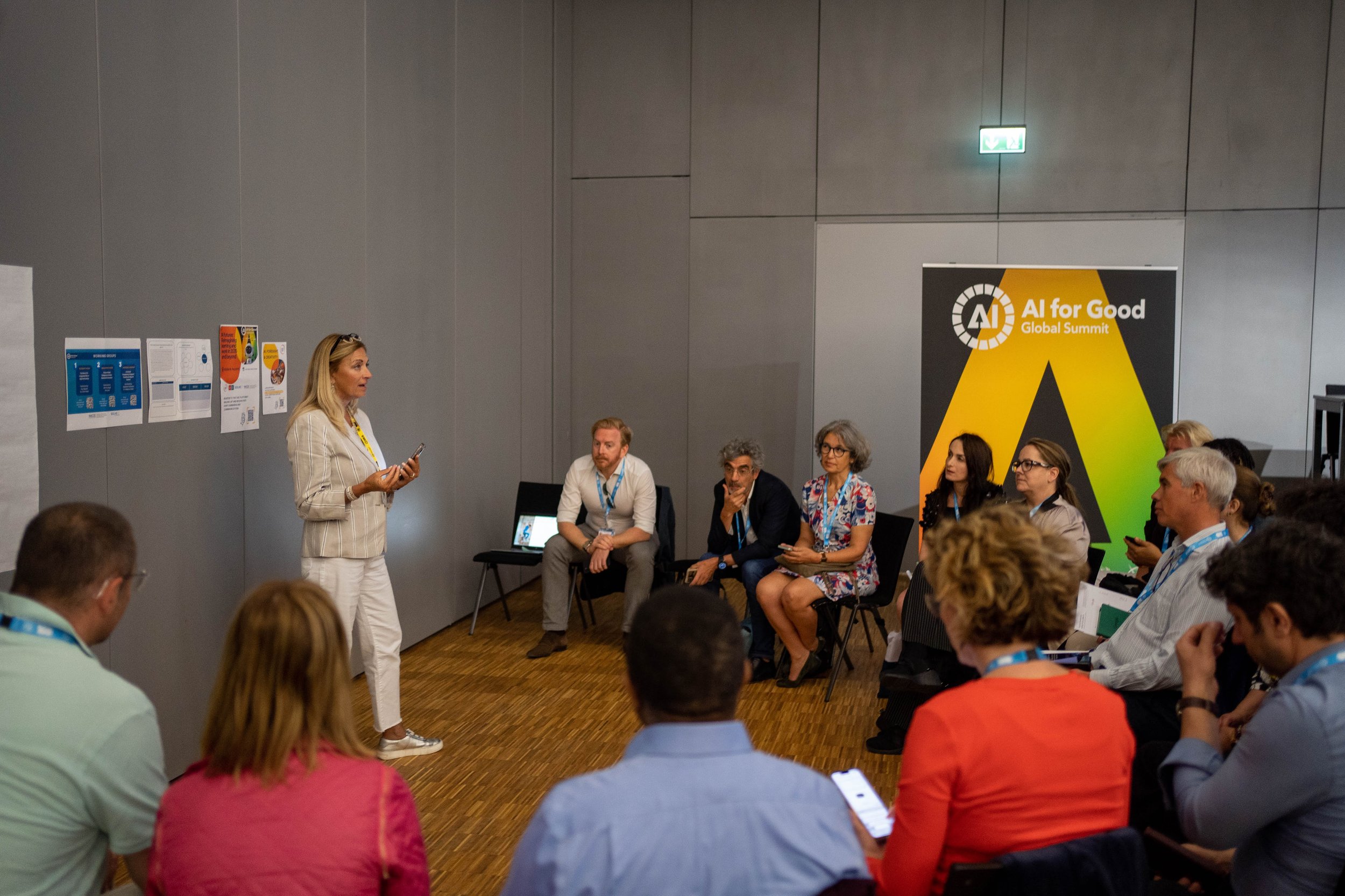
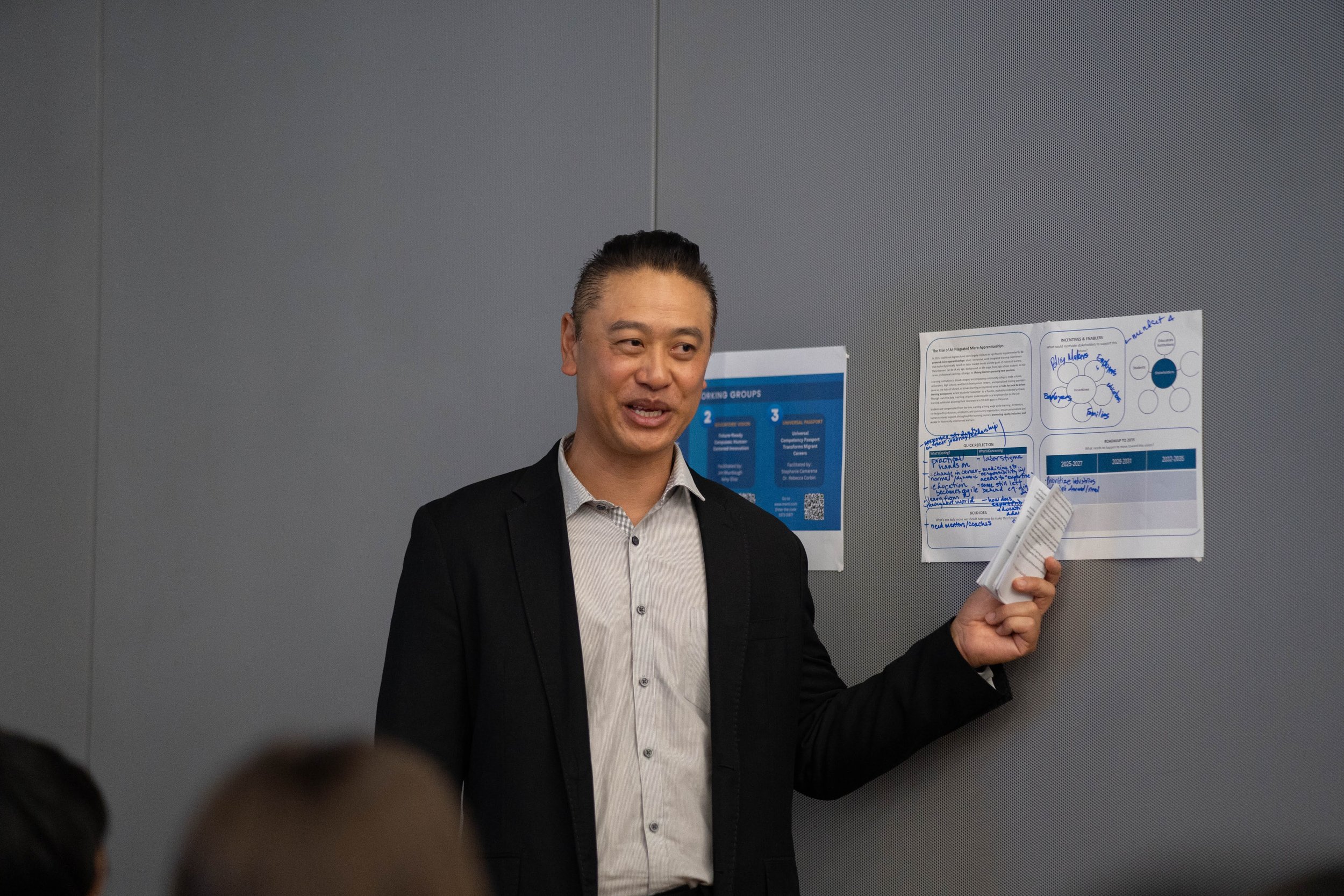
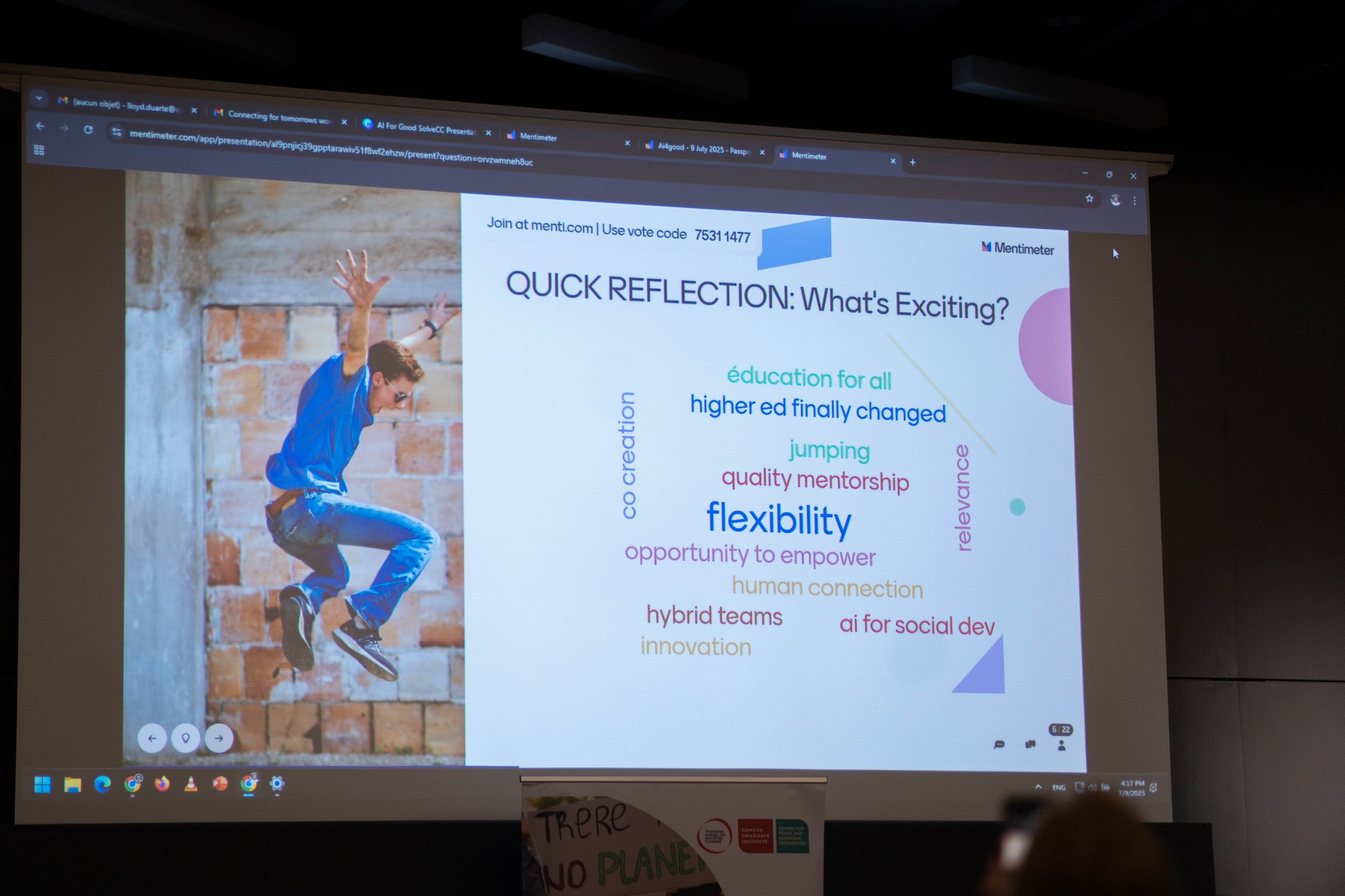
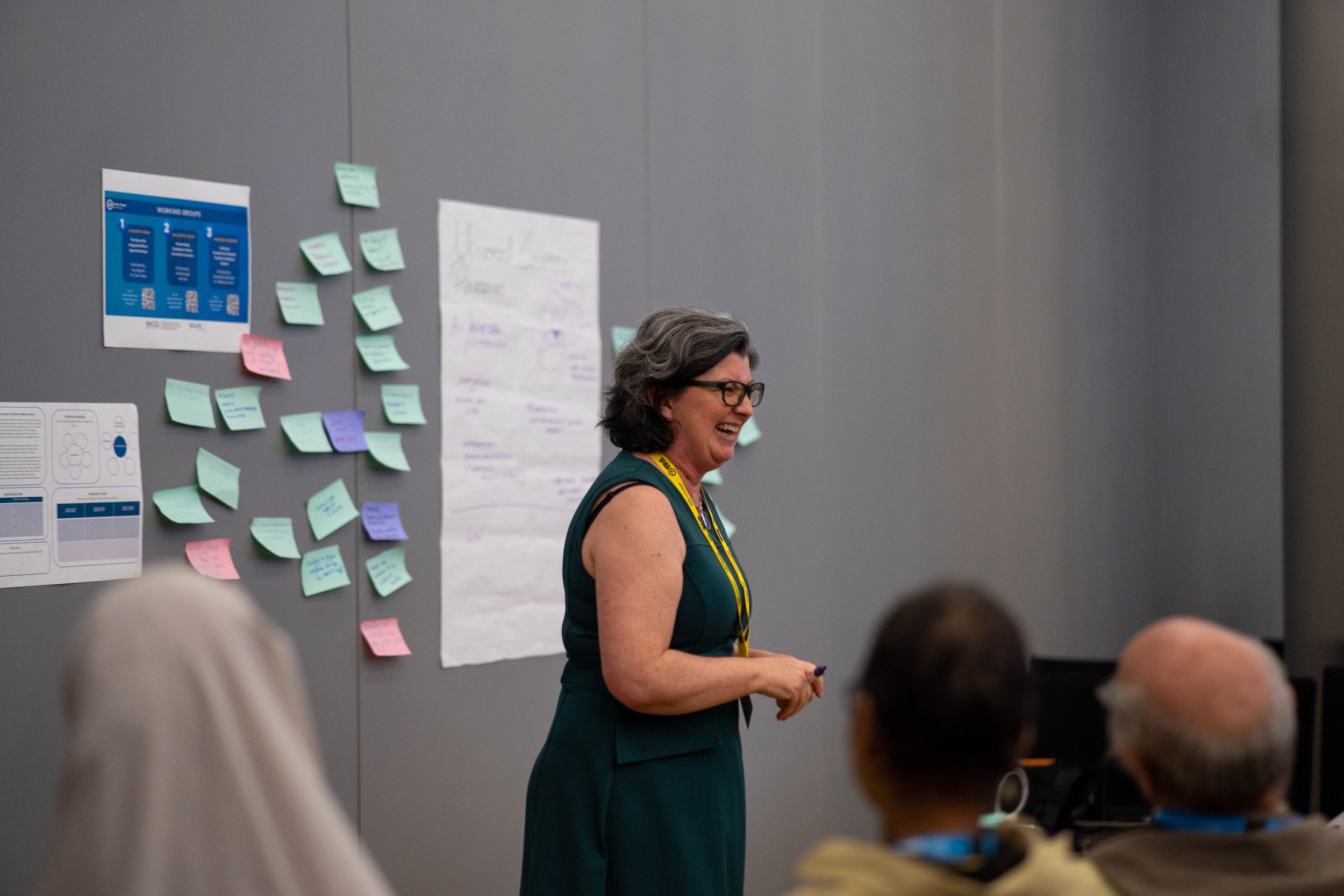
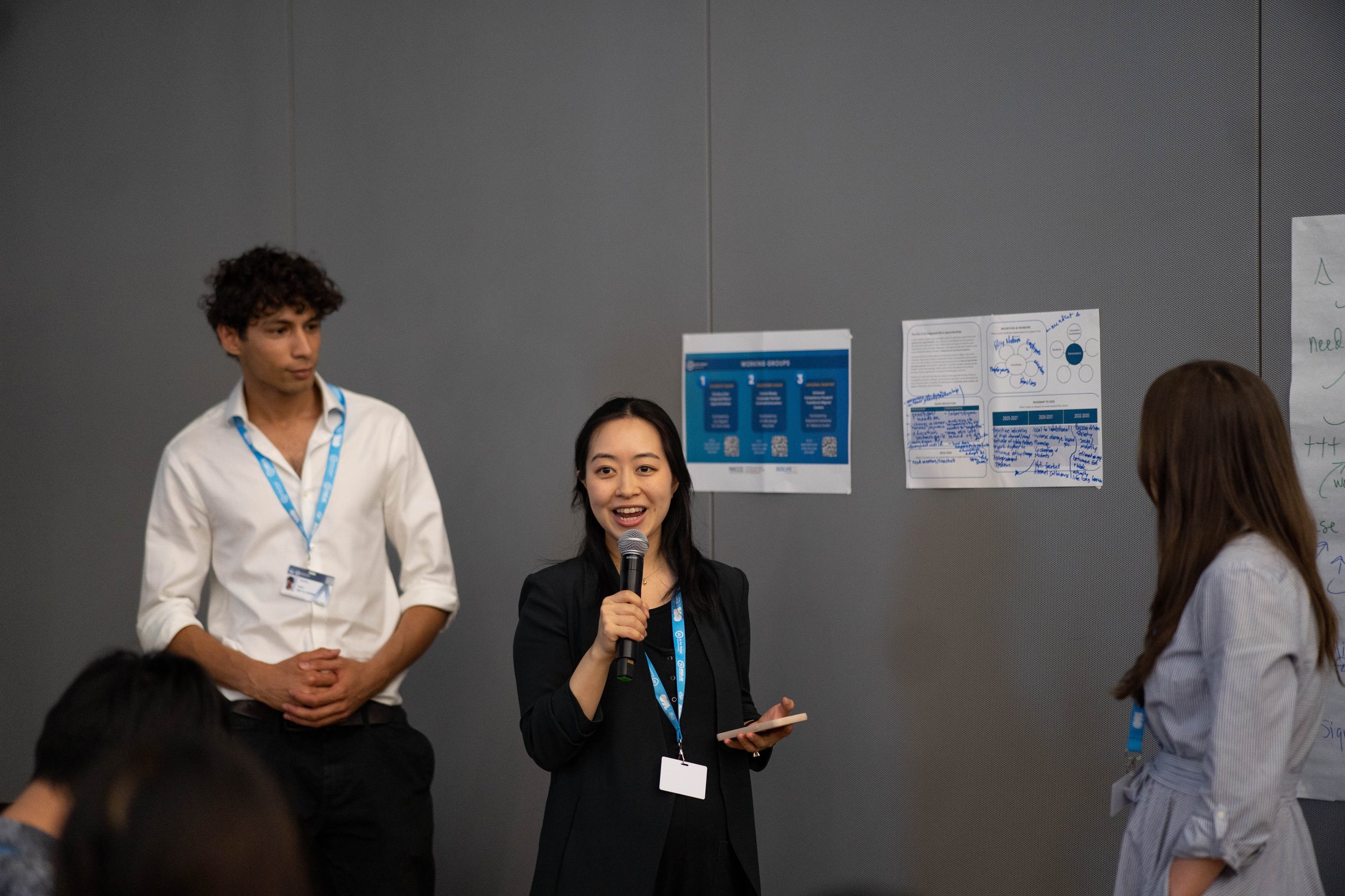
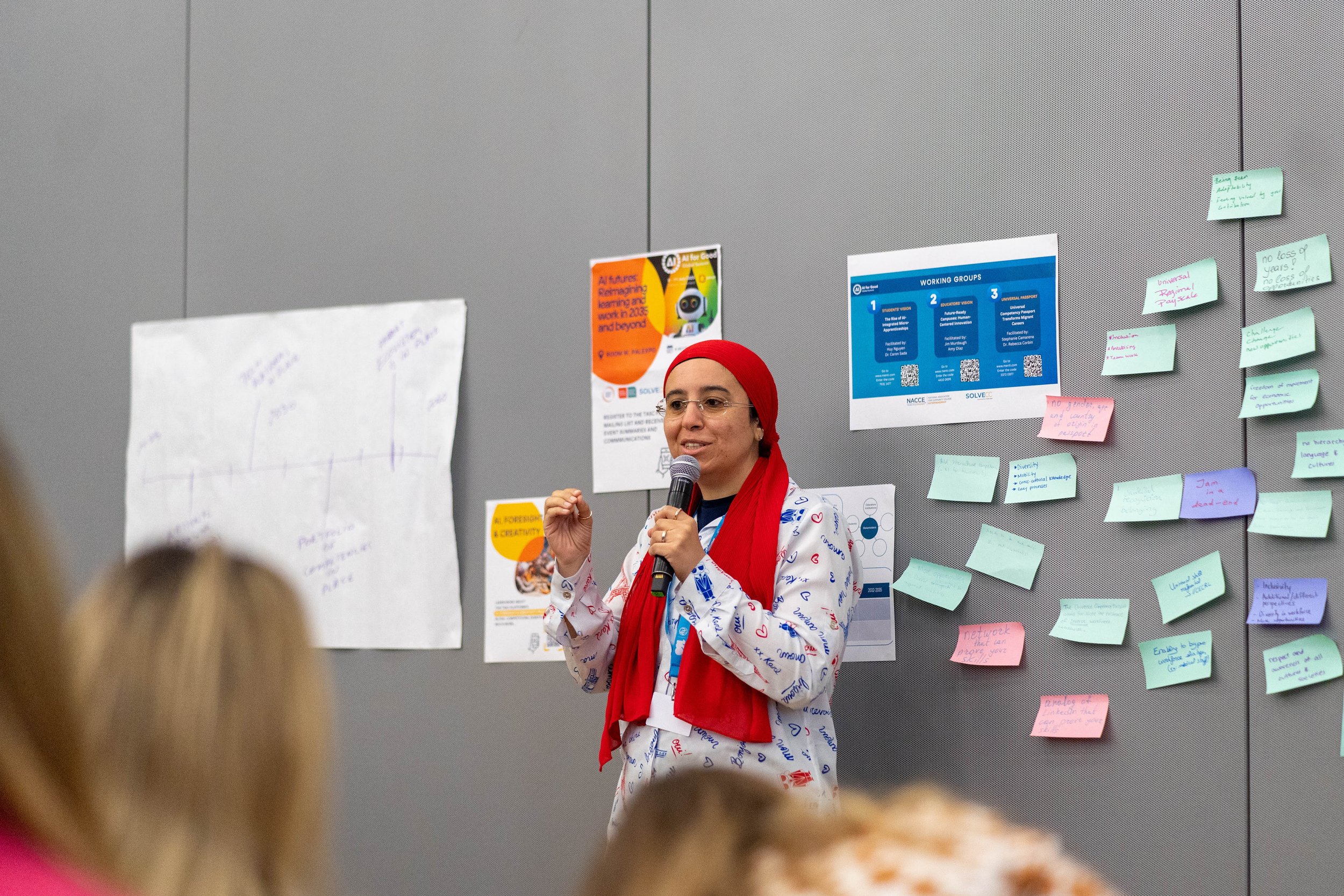
These ideas were brought into strategic dialogue during a closing panel moderated by TASC Executive Director Kitrhona Cerri, with Kay Firth-Butterfield, CEO, Good Tech Advisory, urging that we need policy to move with design, as inclusion and equity cannot remain aspirations, they must shape the systems we build. Across sectors and disciplines, the message was clear: imagination is not enough, institutions must rise to meet it, as Michael Costigan, Vice President, Salesforce Futures, added that foresight is only as good as the structures that follow it. If we do not anchor imagination in systems change, it will not last.
Sasha Rubel, Head of Public Policy for Generative AI, AWS, underscored the governance imperative of needing to move beyond a false debate between innovation and responsibility. Trust drives adoption, and policy must drive both.
This spirit of long-term intention was echoed by Amir Banifatemi, Chief Responsible AI Officer at Cognizant and long-time leader in the AI for Good community:
“The most powerful question we can ask is not how we adapt to AI, but how AI should adapt to us. We have spent years building tools. Now we must shape the baselines: how we learn, how we connect, and how we live together.”
Since 2023, the TASC Platform has contributed foresight, creativity and inclusive dialogue to the AI for Good Global Summit, offering a trusted space where policy, futures thinking, and systems leadership meet to reimagine transitions, with clarity, creativity, and credibility.
What began as a conversation dominated by technology has steadily evolved into one led by people, grounded in inclusion, shaped by future-ready voices, and focused on building intentional, human-centred futures.
If your institution is exploring similar dialogues or looking to engage in future-focused collaboration, we invite you to connect.




